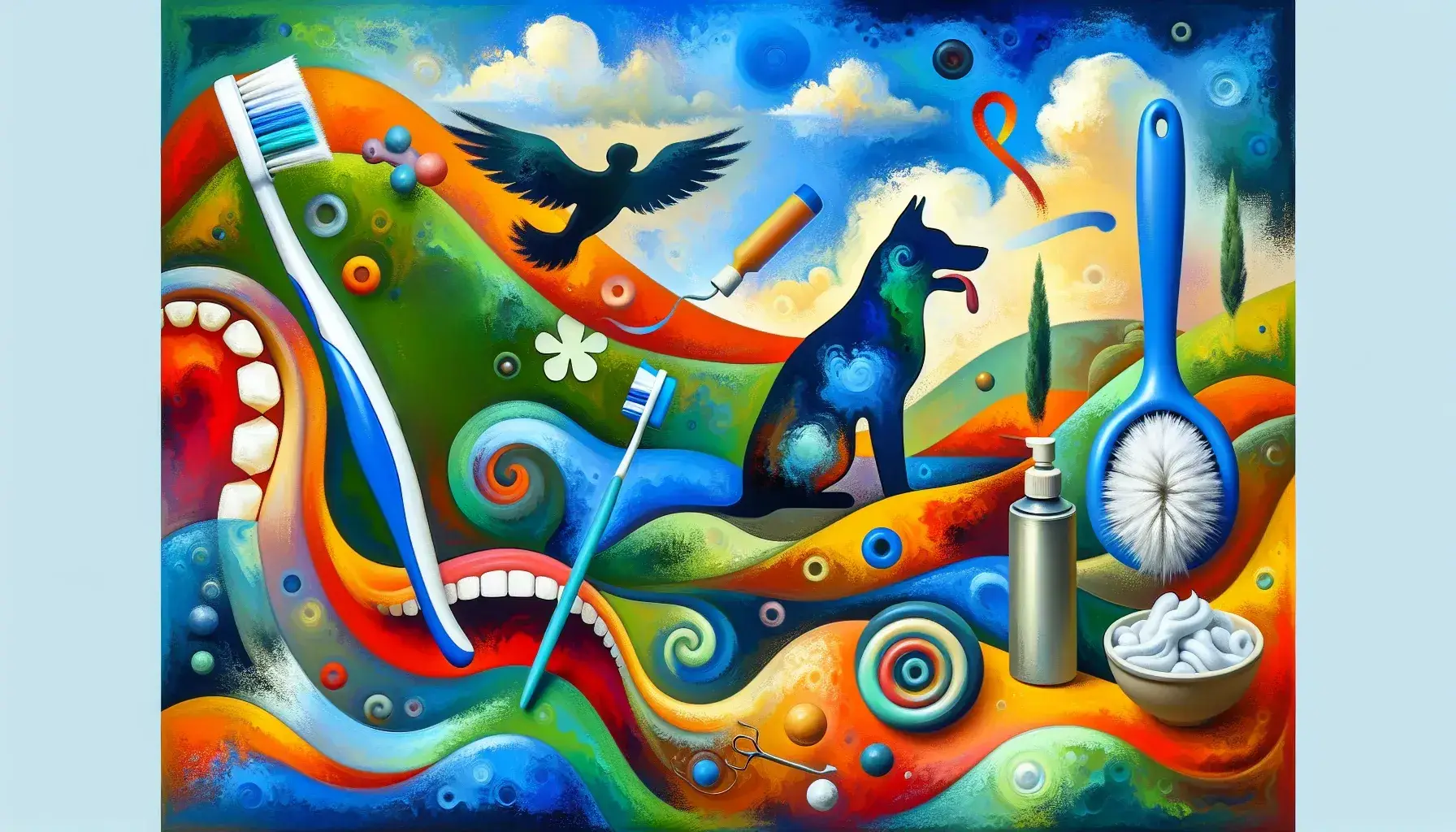
When it comes to pet care, oral health is often an overlooked aspect. Many pet owners are unaware of the importance of dental care for their furry companions. This lack of awareness has led to various myths and misconceptions surrounding pet dental hygiene. Let's debunk some common myths to ensure that your pets receive the best oral care they deserve.
Why is dental care important for pets?
Contrary to popular belief, dental care is crucial for pets. Just like humans, pets can suffer from dental issues such as plaque, tartar, and gum disease. Ignoring their oral health can lead to pain, discomfort, and potential health complications. To maintain optimal dental hygiene, regular brushing and professional dental cleanings are essential.
Myth 1: Pets don't need dental care
While dry food may have a slight abrasive action that can help reduce plaque, it is not sufficient to maintain proper dental hygiene. Some pets may even swallow the kibble whole, bypassing any potential teeth-cleaning benefits. Incorporating dental treats or toys specifically designed to promote oral health can be more effective in supporting your pet's dental care routine.
Related Article: AI-Powered Veterinary Assistance: A Retrospective Look at its Transformative Impact and Future Potential
Myth 2: Dry food can clean pets' teeth
Pets are masters at masking discomfort. Unlike humans, they cannot verbally communicate their dental issues. Consequently, pet owners may not realize that their furry friends are experiencing oral pain until the problem has progressed significantly. Regular dental check-ups by a veterinarian are crucial for early detection and treatment of any dental issues.
Misconceptions about pet dental care can have detrimental effects on your pet's overall well-being. It's essential to clarify these myths and take proactive steps to maintain their oral health.
Myth 3: Pets will show signs of dental problems
Anesthesia-free dental cleanings have gained popularity due to concerns about anesthesia risks in pets. However, these cleanings often provide a superficial cleaning without addressing underlying dental problems. Professional veterinary dental cleanings performed under anesthesia enable thorough examination, X-rays, and the treatment of any underlying issues that may not be apparent during an awake examination.
Related Article: Gene Editing for Tailored Pet Medicine: Charting its Transformative Influence and Ethical Repercussions Over Time
Clarifying Myths Regarding Oral Care for Pets
While bad breath can indicate potential dental issues, the absence of foul odor does not necessarily equate to excellent oral health in pets. Dental problems can exist without noticeable signs early on. Hence, relying solely on breath odor as an indicator of dental health can lead to overlooking underlying issues.
Myth 4: Anesthesia-free dental cleanings are safe and effective
Home remedies such as using human toothpaste or attempting DIY dental procedures on pets can be harmful. Human toothpaste often contains ingredients that are toxic to pets, and improper techniques during at-home procedures can lead to injuries or worsen existing dental problems. Professional guidance and care from a qualified veterinarian are indispensable for maintaining your pet's oral health.
Myth 5: Good breath means good dental health
Now that we've dispelled common myths about pet dental care, let's explore expert tips to ensure your pet's oral health remains in top-notch condition.
Myth 6: Home remedies can replace professional dental care
Incorporate regular brushing into your pet's routine using specially formulated toothpaste for pets. Start slowly with positive reinforcement to make the experience enjoyable for your furry friend. Additionally, provide dental treats or toys recommended by veterinarians to support their oral hygiene regimen.
Regular veterinary check-ups should include a thorough examination of your pet's oral health. Veterinarians can identify early signs of dental problems and recommend professional cleanings or treatments when necessary.
Tip 1: Establish a regular dental care routine
Be observant of any changes in your pet's eating habits or behavior, as these could be indicators of underlying dental issues. Discomfort while eating, pawing at the mouth, excessive drooling, or reluctance to play with chew toys may warrant a visit to the veterinarian for a comprehensive oral evaluation.
Understanding the truth behind common misconceptions about pet dental care is vital for ensuring the well-being of our beloved pets. By debunking these myths and implementing expert-recommended practices, you can actively contribute to maintaining your pet's oral health and overall quality of life.
Frequently Asked Questions
Dental care is crucial for pets because they can suffer from issues like plaque, tartar, and gum disease, just like humans. Neglecting their oral health can lead to pain, discomfort, and serious health complications. Regular brushing and professional cleanings are essential to maintain optimal dental hygiene and prevent these problems.
While dry food may help reduce plaque slightly due to its abrasive texture, it is not sufficient for maintaining proper dental hygiene. Many pets may swallow kibble whole, missing any potential cleaning benefits. It’s more effective to use dental treats or toys specifically designed to promote oral health in pets.
Pets often mask discomfort, making it difficult to detect dental issues early. Signs may include changes in eating habits, excessive drooling, pawing at the mouth, or reluctance to chew. Regular veterinary check-ups are essential for early detection and treatment of any underlying dental problems that may not be immediately visible.






